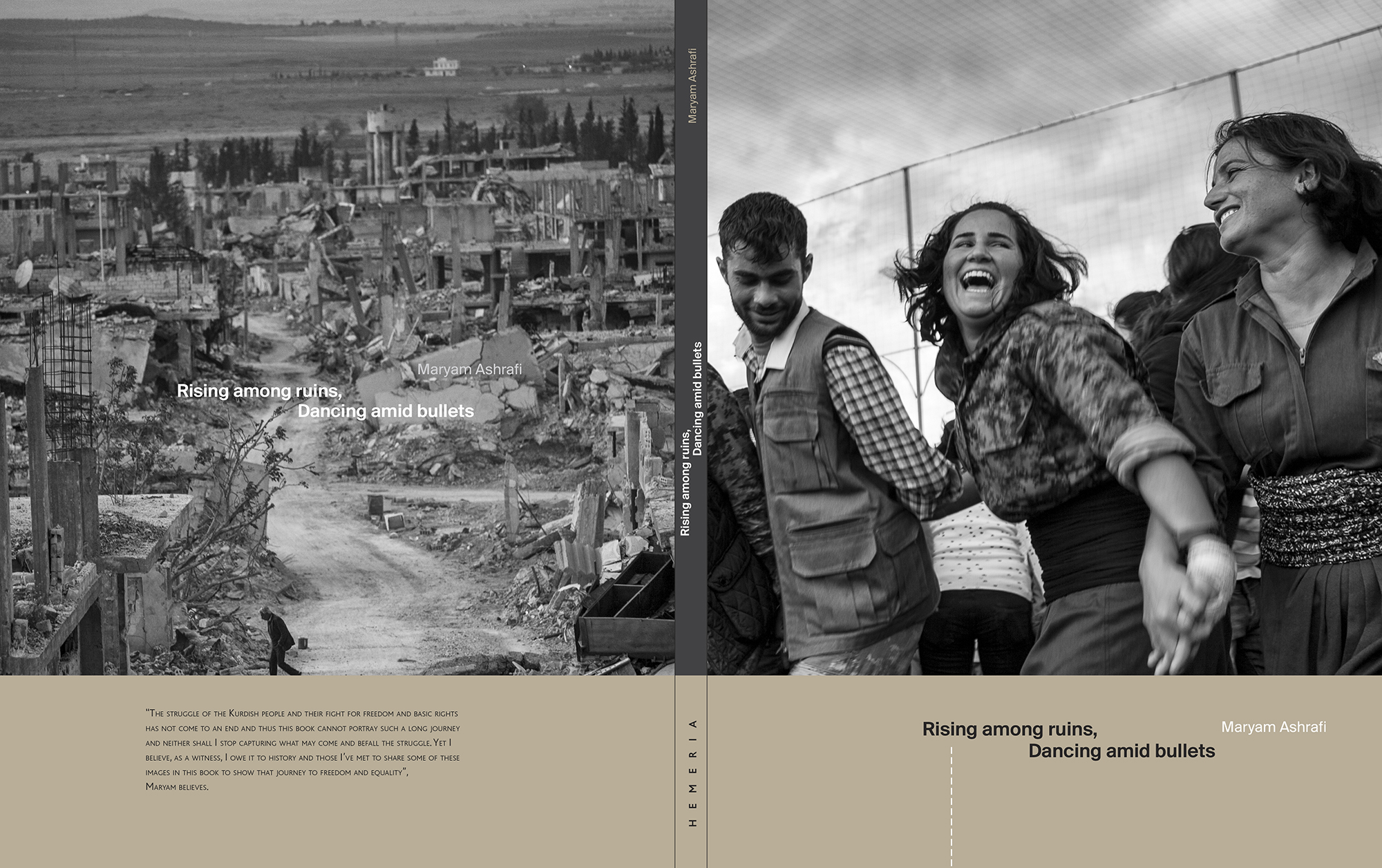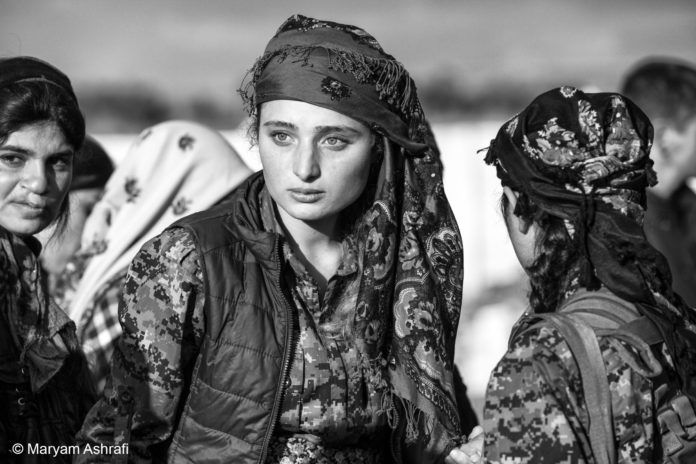PARIS – We discovered Iranian photojournalist Maryam Ashrafi in 2016 thanks to her photo exhibition honouring Kurdish women fighters from Rojava, Syria, and Qandil ( in Kurdistan of Iraq). Maryam Ashrafi will reunite with her audience with a photo book about Kurdish women fighters (although there are some portraits of men in the book) and Yezidi women that she met during numerous trips to Rojava and Kurdistan of Iraq between 2012 and 2017.

cover of the book
It is from this context that emotions and sensations arise, in simple gestures, poses, joyful dances and moments of intimacy. I wanted to make people forget my presence so that only the truth of the struggle and resilience of people remained.
Photos in the book are supported by texts from Allan Kaval, (Journalist for Le Monde Newspaper), Kamran Matin, (Associate professor of International Relations at Sussex University), Carol Mann, (Sociologist and specialist in gender issues and armed conflicts, associate researcher at the University of Paris 8 and director of the Women in War association), Mylène Sauloy, who has documented the conflict in four different parts of Kurdistan, notably since 1998 in Rojava, with films, articles, exhibitions and a soon to be published graphic novel on Kurdish women in war.
Maryam Ashrafi is a social documentary photographer who believes in long-term projects. Her work puts a face on a widely commented war that remains distant and by the West primarily perceived in terms of the number of refugees. Maryam documents the war in her own way, stressing its complexities and the effective construction of a new social model based on equality, with women occupying the same roles as men, contrary to the status quo in their part of the world. That is why, over the years, she has returned to the same places, to show the unique power of people’s resilience and will to live and seek change, and it is her conviction that documenting conflicts and the consequences of war is vital for the provision of evidence and testimony necessary to be seen and known in the future.
“The struggle of the Kurdish people and their fight for freedom and fundamental rights have not come to an end, and therefore this book cannot portray all of their journeys, nor shall I stop documenting what is still to come. Yet I believe, as a witness, I owe it to history and to those I have met for sharing some of these images in this book to show part of their journey to freedom and equality” — Maryam Ashrafi.
Why did I choose Hemeria?
The Hemeria crowdfunding platform is dedicated to photography and allows photographers to self publish and finance the production costs of the books it produces for them. Hemeria guarantees excellence in the reproduction of images while favouring a fair remuneration for the work of photographers who also benefit from visibility in bookstores across France and internationally.
Hemeria also supports me by promoting my work and helps me to get it exhibited in photo festivals aiming to reach a wider audience.
